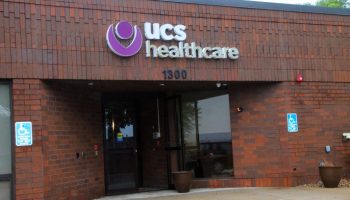Community and Family Resources Fort Dodge
About Community and Family Resources Fort Dodge
Community and Family Resources is a drug and alcohol rehab facility for adults and teens in Fort Dodge, Iowa. You can either stay onsite for treatment or come in for sessions. You’ll be treated in a large facility in a quiet commercial part of town, close to the Bob Hay Memorial Conservation Area.
Detox is typically the start of your healing process. You can get medically monitored detox. Clinical staff members are on hand throughout to treat any uncomfortable or dangerous withdrawal symptoms. They can help you detox from alcohol, drugs or multiple substances as needed.
While you’re in withdrawal, the nurses treat any basic health issues you may have. They can also offer referrals for other healthcare, social or addiction related needs. Once your detox is complete, you’ll move on to a live-in or part time program. Sober living is also available if you need extra support to transition into independent living.
Fort Dodge was nicknamed Little Chicago as some of the early buildings were designed to resemble Chicago architecture. Once associated with lawlessness, Chicago now represents resilience. As you go through recovery, they’ll work with you to tap into your own resilience. Through solo counseling and group therapy, you’ll learn skills to cope with stress in healthy ways. You’ll learn how to avoid relapse.
As you begin to embrace a sober lifestyle, you have the chance to figure out what makes you happy. Fort Dodge offers some options such as the Lakeside Golf Course. Exercise outdoors in the sunshine and fresh air will fill you with a deep sense of natural well-being. If you’re more artistically inclined, they have pottery and painting studios. Get hands-on and find freedom in expressing yourself through creating, or visit the Blanden Art Museum and immerse yourself in what others have made.
| Levels of Care | Detox Service Setting | Programs | Payment Options | ||
|---|---|---|---|---|---|
|
Inpatient and residential programs provide round-the-clock medical and emotional support as you live at the treatment facility. This level of care may be recommended if you have severe addictions or mental health conditions since it removes outside distractions and allows you to focus solely on therapy. |
In outpatient therapy, you’ll attend therapy sessions several times each week while living at home. This is ideal if you have a strong support system and a lower risk of relapse. Outpatient treatment offers flexibility to maintain work, school or family obligations. |
Dual diagnosis programs address substance use disorders and co-occurring mental health conditions simultaneously. This integrated approach to care improves the likelihood of long term recovery and stability by addressing the root causes of addiction. |
Aftercare programs provide ongoing support after you complete a rehab program. They may include several components to help you maintain sobriety including therapy, community support groups and relapse prevention strategies. This gives you a network of resources as you reintegrate into your daily life. |
||
|
Inpatient detox occurs in a dedicated treatment facility. You’ll live there around the clock and receive intensive medical support and supervision to help manage your withdrawal symptoms. It is suitable for individuals with moderate to severe addictions as it ensures a stable detox environment. |
Outpatient detox gives you access to medically supervised withdrawal services while still allowing you to live at home. You’ll attend a clinic for treatment and monitoring. This flexible option is suitable for those with mild to moderate withdrawal symptoms who have strong support systems. |
||||
|
Adult programs address the substance use and life challenges specific to adults. Therapists can deliver sessions in individual, group and family settings. Services often include job support and life skills training in a structured environment. |
Senior programs address the unique needs of older adults like chronic pain, grief and isolation. Programs include peer support and medical oversight for age related health concerns. The goal is to improve quality of life and promote sober aging. |
Women's programs offer a safe and supportive space to focus on gender specific issues such as trauma, family roles and mental health conditions. Therapists tailor the sessions to address women's needs and foster empowerment in a healing and nurturing environment. |
Men's programs address substance use while also considering the social pressures, family roles and mental health concerns that are specific to men. You’ll learn healthy coping mechanisms as you build emotional resilience and develop communication skills. |
LGBTQ friendly programs create an inclusive and affirming space for recovery. Treatment is sensitive to issues like discrimination and stigma. You’ll receive support and therapy that respects and acknowledges your unique experiences. |
|
|
Self Pay
|
Medicaid
|
State Family Services
|
Private Insurance
|
Military Insurance
|
Sliding Scale Payment
|
Levels of Care
Inpatient and residential programs provide round-the-clock medical and emotional support as you live at the treatment facility. This level of care may be recommended if you have severe addictions or mental health conditions since it removes outside distractions and allows you to focus solely on therapy.
In outpatient therapy, you’ll attend therapy sessions several times each week while living at home. This is ideal if you have a strong support system and a lower risk of relapse. Outpatient treatment offers flexibility to maintain work, school or family obligations.
Dual diagnosis programs address substance use disorders and co-occurring mental health conditions simultaneously. This integrated approach to care improves the likelihood of long term recovery and stability by addressing the root causes of addiction.
Aftercare programs provide ongoing support after you complete a rehab program. They may include several components to help you maintain sobriety including therapy, community support groups and relapse prevention strategies. This gives you a network of resources as you reintegrate into your daily life.
Detox Service Setting
Inpatient detox occurs in a dedicated treatment facility. You’ll live there around the clock and receive intensive medical support and supervision to help manage your withdrawal symptoms. It is suitable for individuals with moderate to severe addictions as it ensures a stable detox environment.
Outpatient detox gives you access to medically supervised withdrawal services while still allowing you to live at home. You’ll attend a clinic for treatment and monitoring. This flexible option is suitable for those with mild to moderate withdrawal symptoms who have strong support systems.
Programs
Adult programs address the substance use and life challenges specific to adults. Therapists can deliver sessions in individual, group and family settings. Services often include job support and life skills training in a structured environment.
Senior programs address the unique needs of older adults like chronic pain, grief and isolation. Programs include peer support and medical oversight for age related health concerns. The goal is to improve quality of life and promote sober aging.
Women's programs offer a safe and supportive space to focus on gender specific issues such as trauma, family roles and mental health conditions. Therapists tailor the sessions to address women's needs and foster empowerment in a healing and nurturing environment.
Men's programs address substance use while also considering the social pressures, family roles and mental health concerns that are specific to men. You’ll learn healthy coping mechanisms as you build emotional resilience and develop communication skills.
LGBTQ friendly programs create an inclusive and affirming space for recovery. Treatment is sensitive to issues like discrimination and stigma. You’ll receive support and therapy that respects and acknowledges your unique experiences.
Amenities
Accreditations
Contact
- Monday 10AM - 2PM
- Tuesday 10AM - 2PM
- Wednesday 10AM - 2PM
- Thursday 10AM - 2PM
- Friday 10AM - 2PM
- Saturday Closed
- Sunday Closed

SEO writer by day and author by night, Dianne has written over a dozen novels and hundreds of articles. Her goal for both fiction and content creation is the same: to see people set free to live their best lives. Writing about addiction recovery is a natural extension of her heart – for people to live lives that are whole, happy and fulfilled.

Peter W.Y. Lee is a historian with a focus in American Cold War culture. He has examined how popular culture has served as a coping mechanism for the challenges and changes impacting American society throughout the twentieth century.




